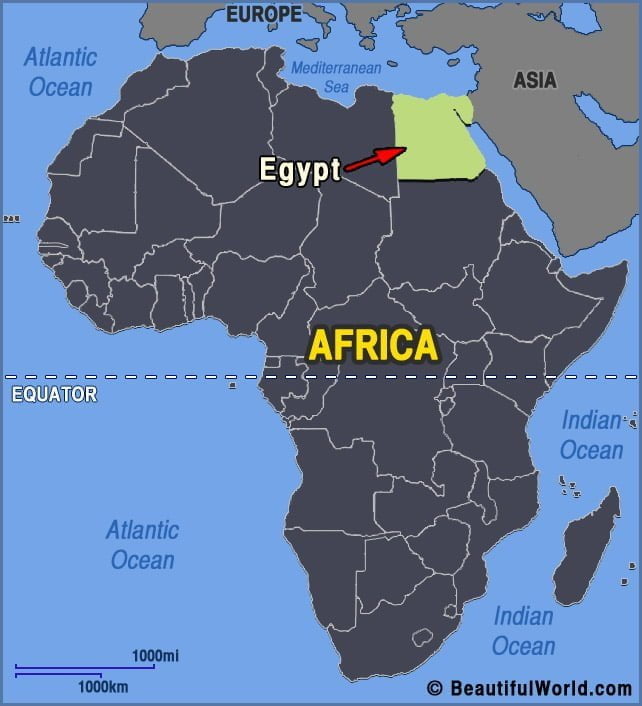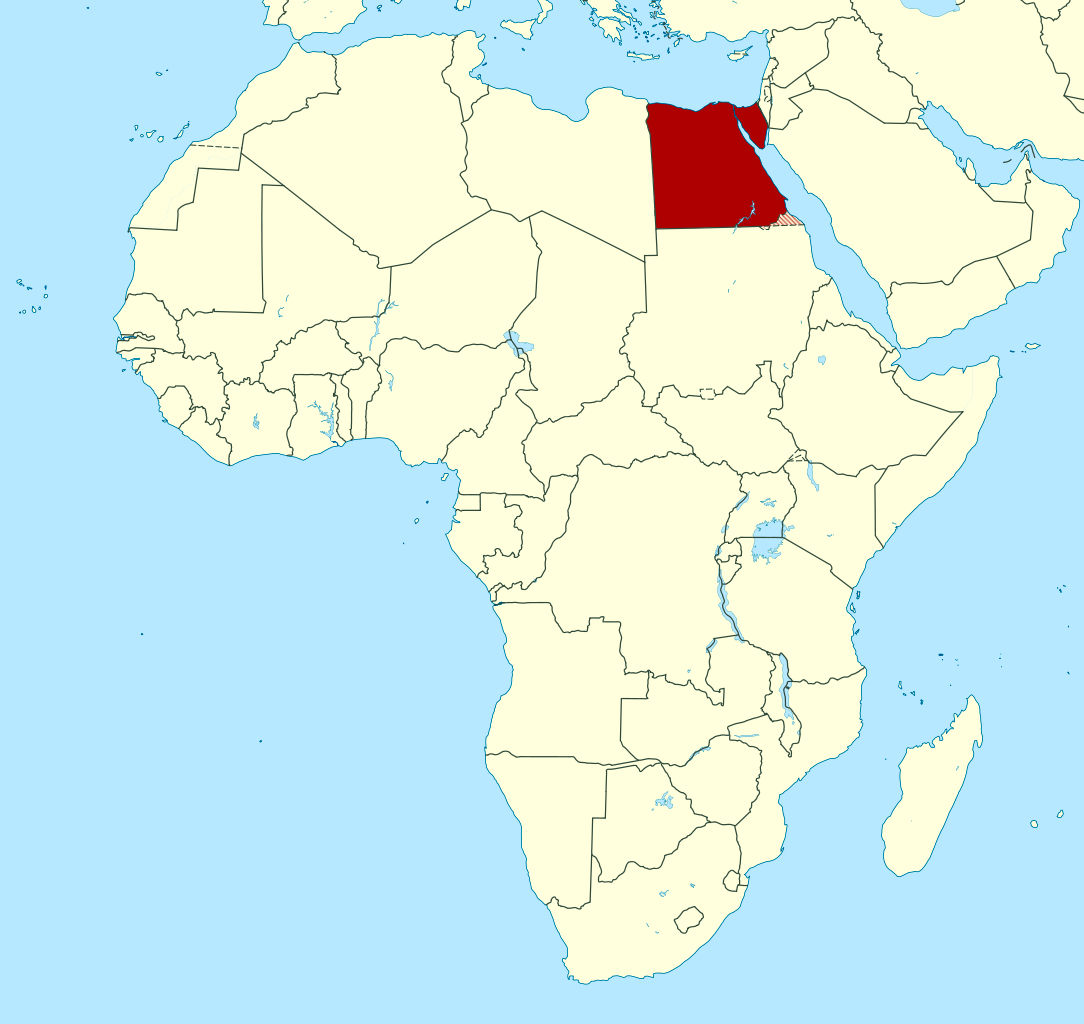Is Egypt In Africa - Unpacking Its Place
It seems a lot of folks often wonder about where Egypt truly sits on the map, and honestly, that’s a pretty fair question to ask. For many, the idea of Egypt brings up pictures of pyramids, ancient pharaohs, and perhaps even desert sands that stretch far into the horizon, yet its exact spot on the globe can sometimes feel a bit like a puzzle. This land, known for its deep history and amazing structures, has a position that sparks conversations, making people curious about its continental home.
You see, this question about its geographic spot, "is Egypt in Africa," is one that has, in some respects, been around for ages, causing a little bit of head-scratching. It is a country that has connections reaching out in many directions, influencing places far beyond its immediate borders. People often talk about its ties to the Middle East and even parts of Europe, which can make its primary location feel less clear-cut than it might appear at first glance, so there is that.
So, while the straightforward answer might seem simple enough, the full picture of where Egypt belongs, geographically and culturally, is a bit more layered. It's a place that holds a unique spot, bridging different parts of the world, and its story is very much shaped by where it is on the planet. This article will look at why this question keeps coming up and what makes Egypt’s place on the map so interesting.
Table of Contents
- The Geographic Truth - Is Egypt in Africa?
- A Land Bridging Continents - How is Egypt in Africa and Asia?
- What Makes Egypt's Location Unique?
- The Nile's Lifeline - How Does it Shape is Egypt in Africa?
- Cultural Connections - Is Egypt in Africa Culturally?
- Political and Economic Ties - What Binds is Egypt in Africa?
- A Look at the Borders and Neighbors
- Why the Confusion Around Is Egypt in Africa?
The Geographic Truth - Is Egypt in Africa?
When you look at a world map, Egypt, for the most part, makes its home on the African continent. It sits right in the northeastern part of Africa, making it a very important country in that region. This is where the bulk of its landmass lies, and where the vast majority of its people live and work. Its African identity, physically speaking, is quite plain to see, you know.
The core of Egypt, the area where its long and storied past truly took root, is the Nile River Valley and its delta. This part of the country, which is absolutely within Africa, was a place where one of the earliest great civilizations of the ancient Middle East came to life. It was, in fact, the site of some of the first cities and places where people started writing things down, shaping the way human societies would grow. So, in terms of its most famous historical bits, it’s all very much tied to Africa.
However, the full answer to "is Egypt in Africa" isn't just about its main chunk of land. There’s a piece of Egypt, a rather significant one called the Sinai Peninsula, that reaches out across a narrow strip of water and actually connects to the Asian continent. This little stretch of land is what gives Egypt its unique status, making it a country that spans more than one major landmass, which is pretty interesting, as a matter of fact.
A Land Bridging Continents - How is Egypt in Africa and Asia?
Yes, Egypt is what people call a "transcontinental country," which means it has parts in two different continents. Most of its territory, the biggest part of it, is located in the northeast corner of Africa. But then there is the Sinai Peninsula, which, as I was saying, stretches into the southwest corner of Asia. This connection is quite rare, as there are not very many countries that can claim to be on two continents at once, you know.
This geographic setup means that Egypt’s borders touch a few different places. To the north, it meets the Mediterranean Sea. To its east, it has the Red Sea, which then opens up to the Arabian Sea and the Indian Ocean. Its land borders include the Gaza Strip of Palestine and Israel to the northeast, and Sudan to the south. To the west, it shares a boundary with Libya. So, its position is, in a way, very central to a lot of different regions.
The fact that the Sinai Peninsula forms a land bridge between Africa and Asia is a big part of why the question "is Egypt in Africa" can feel a bit tricky for some. It’s not just a country sitting neatly on one continent; it’s a place that physically joins two massive land areas. This unique spot has, naturally, played a big role in its long story, influencing everything from trade routes to cultural exchanges over many centuries.
What Makes Egypt's Location Unique?
Egypt's spot on the globe is, frankly, quite special. It's not just about being in Africa or having a bit of Asia; it's about what that location has meant for its past and what it means for its future. Its position at what you could call the entry point to the Middle East, right there on the edge of Africa, has given it a big say in regional matters and a very rich cultural story, too.
The importance of where Egypt sits cannot, in fact, be overstated. It was its geography that, pretty much, wrote the whole history and shaped the way its people lived, along with how it got along with other nations. Think about the ancient civilizations that grew up along the Nile; their success was very much tied to the river and the land around it. This place was, in a way, destined to be a crossroads for people and ideas, which is quite something.
Being one of the biggest and most influential countries on the African continent, with such a long and deep cultural background, means Egypt has both things that help it grow and some things that make things a bit harder. Its strategic spot offers chances for trade and connections, but it also puts it in a place where regional events can have a big impact. So, its location is, in a sense, a double-edged sword, very much so.
The Nile's Lifeline - How Does it Shape is Egypt in Africa?
The Nile River is, without a doubt, the very heart and soul of Egypt. This long, winding river, which flows right through the country, is essentially its lifeblood. It's where almost all of Egypt's roughly 80 million people make their homes, clustering along its banks. This is because the land around the Nile is, as a matter of fact, the only place where farming can really happen, making it a truly vital resource.
The history of Egypt, from its earliest days, is absolutely tied to this river. The Nile Valley in what people call Upper Egypt and the Delta in Lower Egypt are the places where all of Egypt’s food comes from. Without the Nile, the country as we know it simply would not exist. It's a striking example of how a single geographic feature can completely define a nation, its people, and its story, so there is that to consider.
Even though the Nile runs through Egypt and is so crucial to its survival, the river itself starts far away, deep within the African continent. This connection, this natural flow of water from other parts of Africa right into Egypt, highlights its deep roots within the continent. It’s a physical link that shows how much Egypt is, in fact, a part of Africa, dependent on its natural systems, which is pretty neat.
Cultural Connections - Is Egypt in Africa Culturally?
Here's where the question "is Egypt in Africa" gets a bit more involved. Many people find this part a puzzle that keeps coming up year after year. While it’s clear that Egypt is, geographically speaking, on the African continent, its culture and its past have a distinct feel that can make it seem a bit separate from other parts of Africa. This is, you know, a point of much discussion among those who study such things.
Historians often point out that while Egypt is definitely in Africa when you look at a map, its cultural reach and influences stretch quite a bit into the Middle East and even, in some ways, into Europe. This creates a situation where its physical spot is one thing, but its cultural identity might be seen as something a little different. It’s this blend that, basically, adds to the ongoing discussion about its true belonging.
The long story of Egypt, its ancient beliefs, its languages, and its artistic styles, have all been shaped by interactions with many different groups of people from various regions. This mix has given Egypt a cultural richness that is, in a way, all its own. So, when people ask if Egypt is in Africa culturally, the answer is often that it is, but with a unique flavor that draws from a wider circle of influences, which is quite interesting, really.
Political and Economic Ties - What Binds is Egypt in Africa?
Beyond the maps and the cultural discussions, Egypt also has strong political and economic connections that firmly place it within Africa. For example, Egypt has been a member of the African Union since May 1963. This membership shows its commitment to working with other African nations on matters of shared interest, like peace, growth, and cooperation across the continent, so there is that to think about.
Its role as one of the biggest and most influential countries in Africa gives it a big voice in continental affairs. Egypt’s size, its population, and its economic activities mean it plays a significant part in the overall story of Africa. These political and economic links are, in fact, very important in binding Egypt to the rest of the continent, showing that it’s not just a neighbor but an active participant, you know.
The challenges and chances that come with Egypt's location in Africa are also worth considering. Being a large
- Flying Fox Bat
- Sharper Image
- Cast Of Interior Chinatown Television Show
- When Is Memorial Day 2025
- Martin Cast

Map of Egypt - Facts & Information - Beautiful World Travel Guide
Egypt map in Africa, icons showing Egypt location and flags. 15311412

Detailed location map of Egypt in Africa | Egypt | Africa | Mapsland